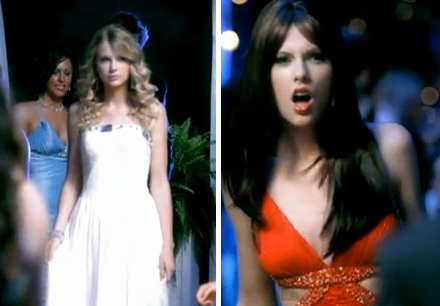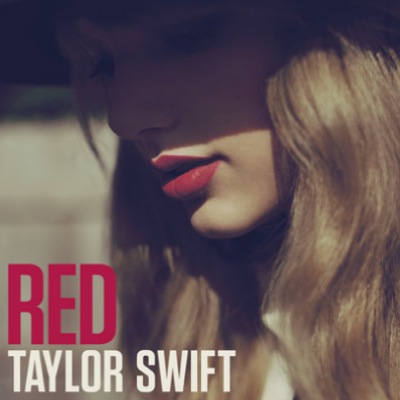Nowadays, it’s difficult to avoid the sensation that is 22 year old Taylor Swift. Country singer and songwriter, Taylor’s popularity has grown exponentially ever since her debut album in 2006. In 2007, when I first heard her music, I was a typical 15 year old girl and had not yet discovered feminism. I liked Taylor’s songs because I was a teenage girl who was interested in teenage boys but felt awkward and unattractive. She successfully expressed what I was feeling so that I didn’t have to. However, since then I’ve grown older and more critically aware. I still guiltily listen to Taylor Swift but I recognise that a great number of her songs and the ideas behind them are actually quite problematic.
Firstly, by almost exclusively writing songs about boys and relationships, Taylor Swift feeds into the patriarchy. She reinforces the idea that “normal” teenage girls should be preoccupied with boys and that their happiness is dependent on whether or not they’re in a relationship (I’m Only Me When I’m With You). Taylor also perpetuates the image of a “perfect relationship”, an idea that doesn’t exist as it does in her songs.
Furthermore, in promoting the image of a perfect relationship she critiques what she sees as imperfect relationships and this often leads to slut shaming. In arguably her most famous song You Belong With Me she sings about how she wants to date a boy who is already in a relationship with a popular girl. The music video, which won the MTV Video Music Award for Best Female Video, features Taylor Swift playing the role of herself, but also the antagonist. The video perfectly embodies the Madonna-Whore Dichotomy in which women are either portrayed as perfect and virtuous Madonna figures who should be idolised or, if they have any sexual desire, a worthless whore with no morality. In Taylor’s video, she as “herself” is the Madonna. She dances, she reads and she shows up to prom looking like an angel. On the other hand, the mean, popular girl is Taylor in a brunette wig. She pulls faces, flirts with all the boys and turns up at prom with a revealing dress. Although this argument is complicated by the fact that Taylor Swift assumes both roles, she is still dividing her identity into these two tropes and her promiscuity is still associated with the popular girl (whore) who ends up being rejected.

About her first album Taylor said, “although “it sounds like I’ve had 500 boyfriends, a lot of the songs are observational” but as she has gotten older and into more serious relationships which has been extensively reported by the tabloid media, the songs on her recent albums can often clearly be paired with well known celebrities. By writing about her life experiences in great detail, she is divulging personal information and harmful rumours about real, identifiable people – most notably seen in Better Than Revenge which contains the lyric: “she’s better known for the things that she does on the mattress”.
The song Fifteen is also problematic. It preaches abstinence in the form of Taylor’s anecdotal high school best friend Abigail. In the song Abigail is portrayed as a naive girl who sleeps with her high school boyfriend because they love each other, but actually he ends up breaking her heart. However, what’s sexist about the song is that Abigail is portrayed as stupid for believing her boyfriend when he says “I love you”. The song includes the lyric “Abigail gave everything she had to a boy” when referring to her virginity, basically equating a woman’s worth with her sexual purity. With abstinence only sexual education receiving $55 million dollars of federal funding in the US this year alone, Taylor is feeding into an already dangerous myth that leaves young people unprepared and uneducated sexually.
Taylor Swift’s attitudes have arguably improved over the years and she shows willingness to admit past wrongdoings. She recently revised the song Picture to Burn on her first album which contained the homophobic lyrics “so go and tell your friends that I’m obsessive and crazy/ that’s fine, I’ll tell mine you’re gay”. Lyrics which have rightly been critiqued because they casually compare homosexuality to mental illness and also perpetuate the idea that there is something wrong with being gay. After the critique, Taylor changed the lyrics of the song to “so go and tell your friends that I’m obsessive and crazy/ that’s fine you won’t mind if I say/ by the way…” which then leads into the chorus.
Although it can be difficult to reconcile enjoying songs as problematic as Taylor Swift’s, I believe that in a patriarchal world, sexist media is impossible to avoid and we should be able to enjoy it as long as we stay aware of the misogyny it contains and are open to its critiques. Which is why, although listening to Taylor Swift has become a bit of a guilty pleasure, I won’t be stopping anytime soon.
Tilly Wood
